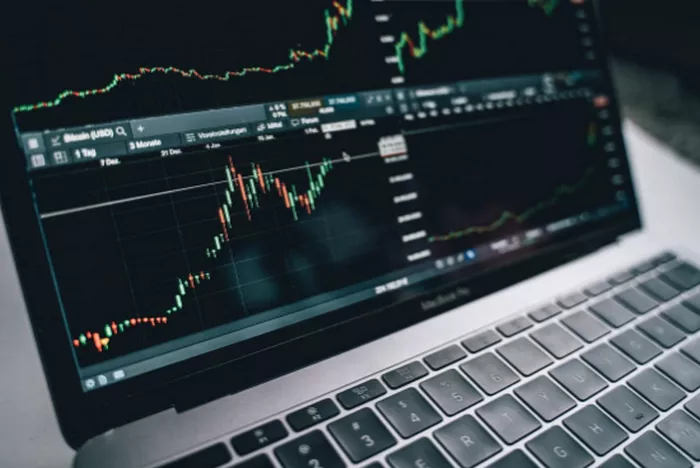Understanding how to calculate the future value is a fundamental skill in finance and investment. Whether planning for retirement, evaluating investment opportunities, or analyzing the potential growth of savings, the concept of future value plays a pivotal role. This comprehensive guide aims to shed light on the intricacies of calculating future value, exploring various methods and considerations to help individuals and investors make informed decisions about their financial futures.
Understanding the Basics of Future Value
Future value is a financial concept that represents the value of an investment or asset at a specific point in the future, taking into account the impact of compounding. In simple terms, it quantifies the future worth of a sum of money invested today. Calculating future value involves considering the initial investment amount, the interest rate, and the time period for which the investment grows. The formula for future value is a powerful tool that empowers individuals to project the potential growth of their investments over time.
The Future Value Formula
This formula accounts for compound interest, a critical factor in the growth of an investment over time. Compound interest means that not only does the initial investment earn interest, but the interest itself earns interest, leading to exponential growth in the future value.
Choosing the Appropriate Compounding Frequency
The frequency at which interest is compounded significantly influences the future value of an investment. Common compounding periods include annually, semi-annually, quarterly, monthly, and daily. The formula for future value adjusts based on the compounding frequency. The more frequent the compounding, the higher the future value will be. Investors should be mindful of the compounding period chosen, as it directly impacts the potential growth of their investments.
See Also: How to trade futures reddit: A How-To Guide
Accounting for Time in Future Value Calculations
Time is a critical component in future value calculations. The longer the investment period, the greater the impact of compounding on the future value. Time allows for the compounding of interest to accumulate, resulting in exponential growth. Investors should carefully consider their investment horizon when calculating future value, as time is a key determinant of the ultimate worth of an investment.
Future Value of a Series of Cash Flows
In many real-world scenarios, individuals make regular contributions or receive periodic cash flows. Calculating the future value of a series of cash flows involves incorporating these periodic additions or withdrawals into the future value formula.
This formula allows individuals to account for the impact of regular contributions or withdrawals on the future value of an investment.
Incorporating Inflation in Future Value Calculations
Inflation erodes the purchasing power of money over time, and it is crucial to consider its impact when calculating future value. Adjusting for inflation ensures that the future value is expressed in real terms, accounting for the decrease in the value of money.
Considering the impact of inflation provides a more accurate representation of the actual purchasing power of the future value.
Risk and Return in Future Value Analysis
Investors must carefully weigh the relationship between risk and return when projecting future values. Investments with higher expected returns often come with increased risk. When calculating future value, individuals should consider their risk tolerance, investment objectives, and time horizon. Diversifying investments across different asset classes can help manage risk and optimize the potential for future value growth.
Investment Vehicles for Future Value Growth
Various investment vehicles can be employed to grow future value, each with its own risk-return profile. Common investment options include stocks, bonds, mutual funds, real estate, and retirement accounts. The choice of investment vehicle depends on individual preferences, risk tolerance, and financial goals. Diversifying across different assets can enhance the potential for future value growth while mitigating risk.
Tax Implications and Future Value
Understanding the tax implications of investments is essential when calculating future value. Different investment vehicles may have varying tax treatments, affecting the after-tax future value. Tax-advantaged accounts, such as Individual Retirement Accounts (IRAs) and 401(k) plans, offer potential tax benefits that can enhance the growth of future value. Consulting with tax professionals is advisable to optimize investment strategies and minimize tax liabilities.
The Role of Financial Planning in Future Value
Incorporating future value calculations into financial planning is crucial for individuals and investors. Financial planning involves setting realistic financial goals, creating a budget, and developing investment strategies aligned with long-term objectives. Future value analysis helps individuals assess the feasibility of achieving their financial goals and make informed decisions about savings, investments, and retirement planning.
Using Financial Tools for Future Value Calculations
Advancements in financial technology have made it easier for individuals to perform future value calculations using various online tools and calculators. These tools allow users to input variables such as initial investment, interest rate, compounding frequency, and time horizon, providing quick and accurate future value projections. Leveraging these tools can empower individuals to make informed financial decisions and track the potential growth of their investments over time.
Educational Resources for Future Value Analysis
For those looking to enhance their understanding of future value calculations, there are numerous educational resources available. Books, online courses, and financial websites offer in-depth insights into the principles of time value of money, compounding, and future value. Familiarizing oneself with these concepts provides a solid foundation for making sound financial decisions and optimizing the growth of future value.
Conclusion
Mastering the art of calculating future value is an essential skill for individuals and investors alike. Whether planning for retirement, evaluating investment opportunities, or setting financial goals, understanding the impact of compounding and time on future value is crucial. By employing the future value formula, considering compounding frequency, accounting for time and inflation, and assessing risk and return, individuals can make informed decisions that align with their financial objectives. As financial markets evolve, leveraging technology and educational resources further enhances one’s ability to navigate the complexities of future value analysis, ultimately contributing to a secure and prosperous financial future.

